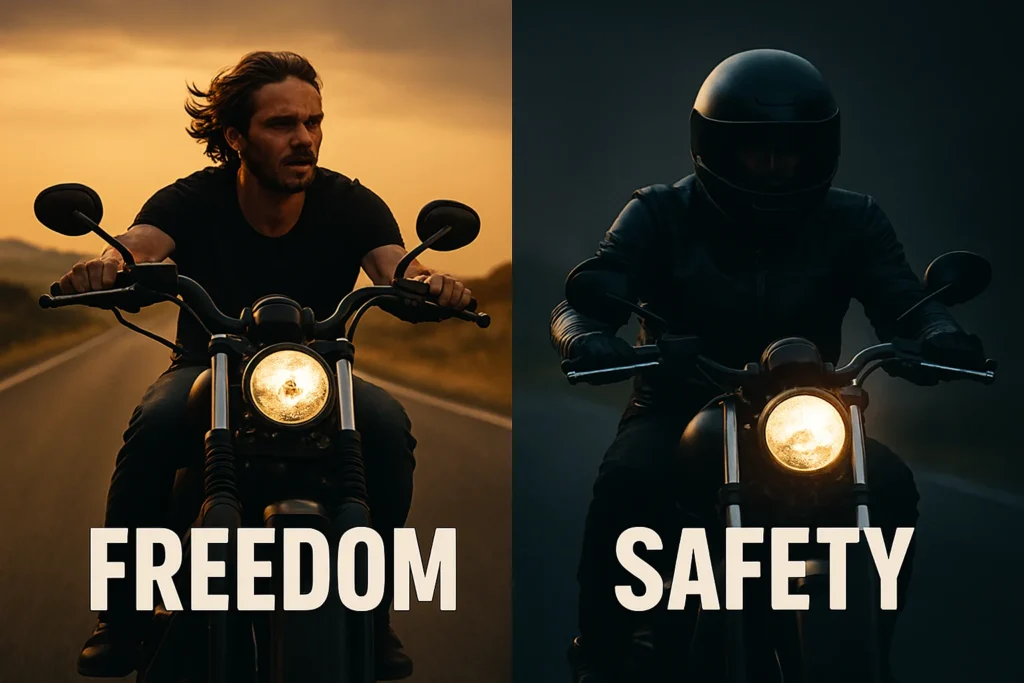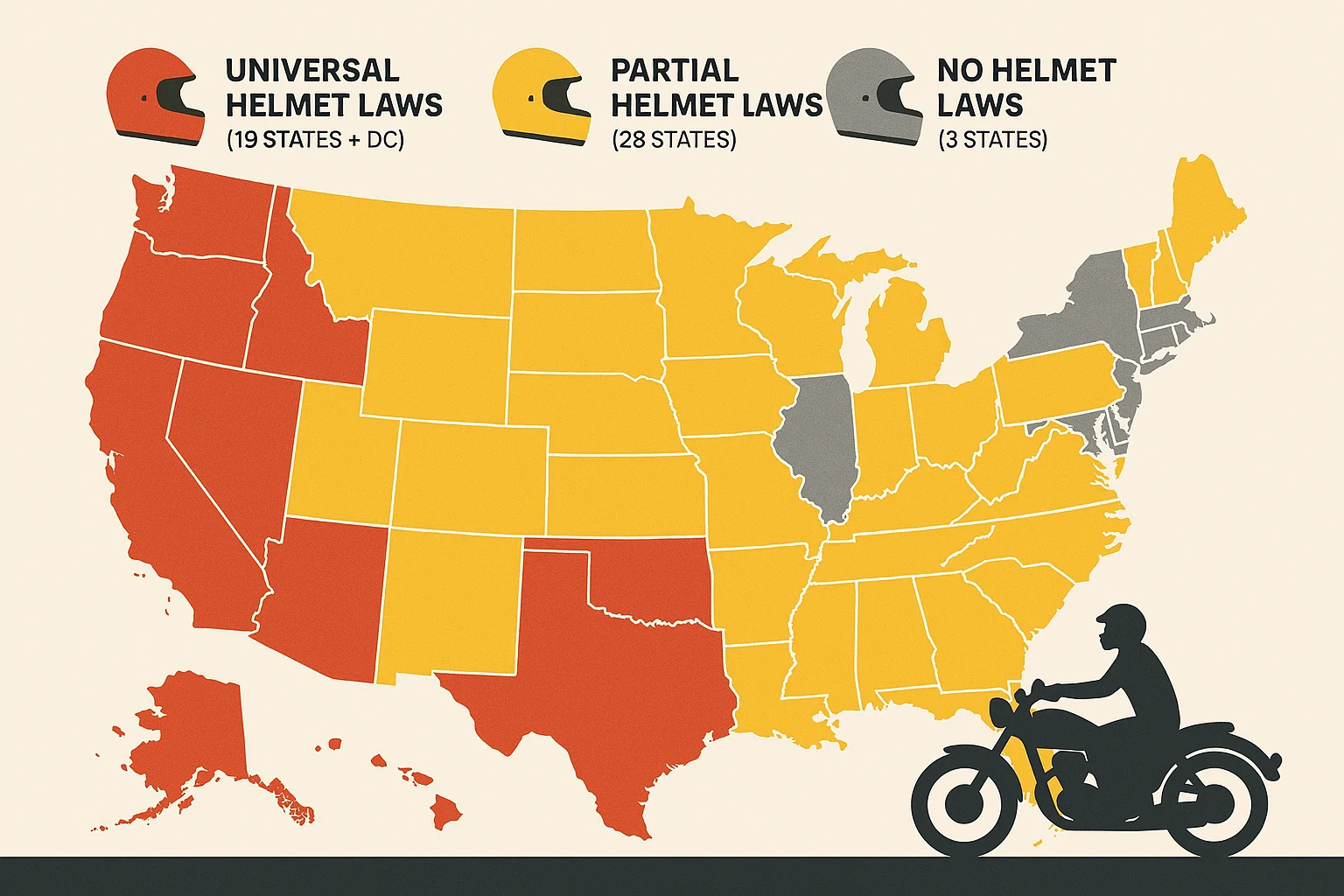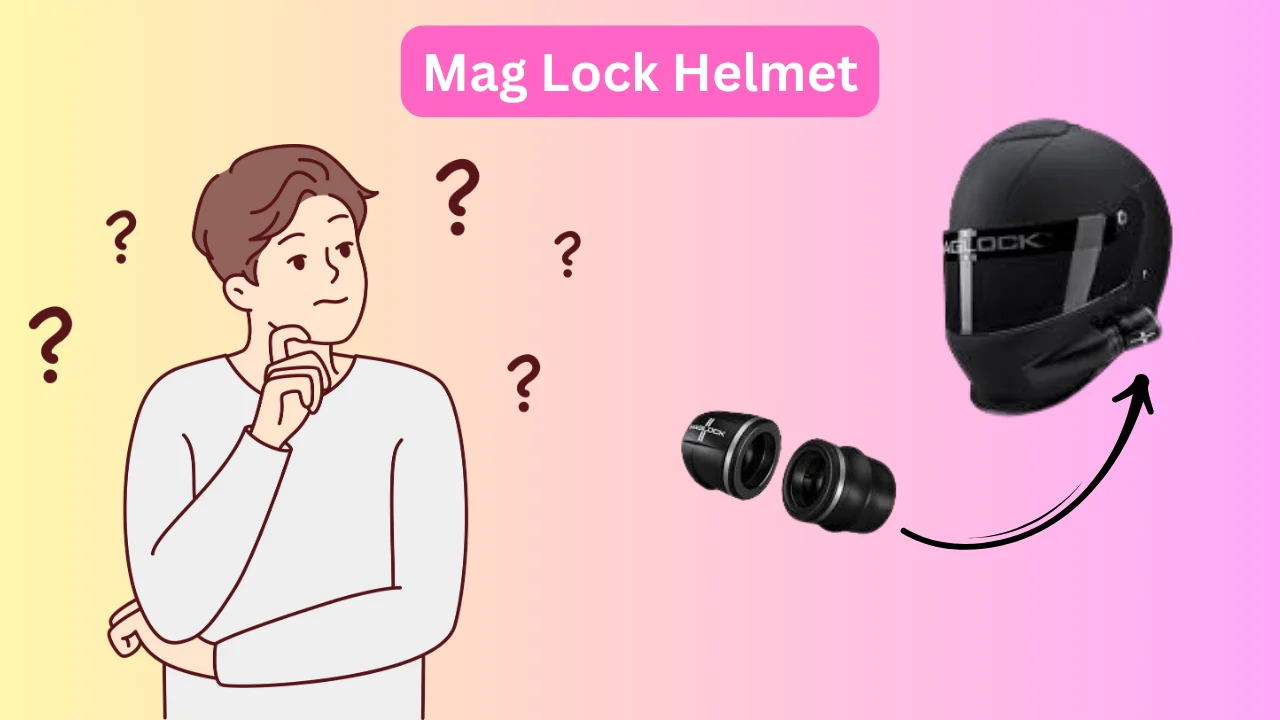When I first started riding, the feeling of the open road, the wind rushing past, and the hum of the bike beneath me was like nothing else. I wanted freedom, and for me, freedom meant no restrictions. I thought riding without a helmet looked cool. But as I put more miles behind me and rode through different states, I realized that knowing in what states are motorcycle helmets required is not just about following rules. It is about safety, avoiding unnecessary tickets, and being prepared as a rider.
In this blog, I will walk you through motorcycle helmet laws state by state, how they work, and why they matter. I will also share what I learned on my own journeys. Whether you are a weekend rider, a cross-country traveler, or someone new to the biker lifestyle, this guide will give you everything you need to know about helmet laws and how they affect us as motorcyclists. Discover if motorcycle helmets have Bluetooth and find out which models offer seamless connectivity.
Motorcycle Helmet Laws in the United States
Motorcycle helmet laws in the U.S. vary widely. Unlike seat belt laws for cars, which are more uniform, helmet rules change depending on the state you are riding in. This can get confusing, especially when you are on a road trip that cuts across several states in a single day.

Here is the breakdown:
- 3 states have no motorcycle helmet laws at all: Illinois, Iowa, and New Hampshire.
- 19 states plus Washington D.C. have universal helmet laws. In these states, every rider and passenger must wear a helmet, no exceptions.
- 28 states have helmet laws that apply only to certain riders. Usually, these laws are based on age (such as under 18 or 21) or rider experience (new riders may be required to wear helmets).
So, depending on where you are, the law may say you need a helmet, or it may leave the choice to you.
In What States Are Motorcycle Helmets Required?
When you ride through these states, you and your passenger must wear a helmet at all times. Here is the full list:
- Alabama
- California
- Georgia
- Louisiana
- Maryland
- Massachusetts
- Mississippi
- Missouri
- Nebraska
- Nevada
- New Jersey
- New York
- North Carolina
- Oregon
- Tennessee
- Vermont
- Virginia
- Washington
- West Virginia
- And Washington DC.
I remember my first trip down the Pacific Coast Highway in California. The law required a helmet, and honestly, I was glad it did. The winding roads, heavy traffic, and unpredictable drivers made me realize how vulnerable we are on bikes. Wearing a helmet didn’t take away the thriller. Instead, it gave me peace of mind so I could focus on the ride. Wondering is Ruroc a good brand? Get the expert breakdown before making your choice.
States with No Helmet Laws
Now, here is the shocker. There are three states in America where there are absolutely no motorcycle helmet laws:
- Illinois
- Iowa
- New Hampshire
When I passed through Iowa, I saw plenty of riders without helmets. At first, I thought about trying it myself for “the full freedom effect.” But honestly, after years of riding, I realized that freedom does not mean taking unnecessary risks. If I crash, my freedom is gone in an instant. That realization stuck with me.
States with Partial Helmet Laws
The majority of states, 28 of them, sit in the middle. Their helmet laws depend on age or rider experience. For example, in some states, riders under 18 must wear a helmet, while older riders can make their own choice. In others, the rule applies to riders under 21. A few states also add rules for new motorcyclists who have had their license for less than a year.
This is where things can get tricky. If you are traveling cross-country, you may go from a state where helmets are optional to one where you can get pulled over and fined for not wearing one. Learn whether Ruroc helmets are safe and how they perform in real crash testing.
Why Motorcycle Helmet Laws Matter
Now let us talk about the big question. Why do helmet laws exist in the first place?
The truth is, riding a motorcycle is riskier than driving a car. You do not have airbags, a steel frame, or crumple zones protecting you. If you go down, your helmet is often the only thing between your head and the pavement.
Research from the National Highway Traffic Safety Administration (NHTSA) shows that helmets reduce the risk of head injury by 69 percent and the risk of death by 37 percent. Those numbers are hard to ignore.
I learned this lesson in a personal way. A close friend of mine went down on a rainy night while riding back from a rally. He hit a slick patch and lost control. His helmet was cracked in two places, but he survived. Without it, I do not think he would have made it. That experience changed how I look at helmet laws forever.
Motorcycle Helmet Laws and Interstate Travel
If you are like me and love long road trips, crossing state lines can make helmet laws confusing. Imagine starting your ride in New Hampshire, where helmets are optional, then crossing into Vermont, where helmets are mandatory for everyone.
Some states even have specific lists of approved helmets that comply with their laws. Others reference federal safety standards. This creates situations where bikers get cited even when wearing a helmet, simply because it did not meet the exact state requirement.
That is why I always check the Governors Highway Safety Association (GHSA) website before a long trip. It has updated information on helmet requirements state by state.
Freedom vs. Safety: The Biker Debate
Among bikers, helmet laws are one of the most debated topics. Some riders see helmets as a restriction of freedom. Others see them as essential for safety.
I get both sides because I have been in both camps. When I was younger, I thought, “My head, my choice.” As I got older and saw accidents firsthand, my view changed. Today, I believe freedom also means living long enough to enjoy more rides.
One biker I met at Sturgis put it perfectly: “If you value your face and the contents of your skull, put on a helmet.” Planning your budget? See how much a motorcycle helmet costs across different quality and materials.
What Happens if You Are in an Accident Without a Helmet?
Here is something many riders do not know. Even if you are not wearing a helmet in a state where it is required, you can still get compensation if you are injured in an accident.
Insurance companies may argue that not wearing a helmet contributed to your injuries. This could reduce your settlement, but it does not erase the responsibility of the other driver if they caused the crash.
That is why consulting a motorcycle accident attorney is so important if you are ever in this situation. A good lawyer can explain how helmet laws affect your case and fight to get you the compensation you deserve.
Tips for Riders on Helmet Laws
From my own experience on the road, here are a few tips:
- Always check helmet laws before a road trip. Laws can change, and fines are not worth the hassle.
- Invest in a DOT-approved helmet. This way, you meet the federal standard that most states recognize.
- Comfort matters. A helmet that fits right makes riding more enjoyable and safer.
- Consider full-face helmets. They protect not just your skull but your jaw and face.
- Err on the side of safety. Even in states without laws, wearing a helmet is the smart choice.
Why Helmet Laws Are Useful for Bikers Like Us
Helmet laws are not just rules written by lawmakers. They are there because real riders have been injured or killed in preventable accidents. For me, helmet laws serve as reminders that riding is a privilege, and protecting myself means I can ride longer and safer.
Think about it. If you are planning a road trip across multiple states, knowing the laws helps you avoid tickets and stay compliant. More importantly, it keeps you prepared for the unexpected. A sudden swerve, a distracted driver, or a patch of gravel can turn a fun ride into a nightmare. A helmet is often the difference between walking away and never riding again.
The Big Takeaway
So, in what states are motorcycle helmets required? The short answer is: in most of them, at least for certain riders. Only three states have no helmet laws. Nineteen states and D.C. require helmets for everyone. The rest have partial laws.
As bikers, we value freedom. But the road teaches us hard lessons, and one of them is this: safety and freedom can coexist. A helmet does not take away the thrill of the ride. If anything, it makes it possible to keep enjoying that thrill for years to come.
My advice? Respect the laws, but more importantly, respect yourself. The wind in your hair feels good, but being alive to ride another day feels even better. Curious if Bluetooth motorcycle helmets are legal in your area? Get the full legal scoop.





